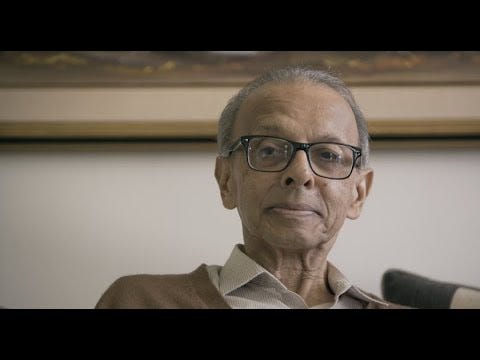The university project that became a global phenomenon
Description
If you've downloaded the VLC media player on your desktop, you know how well it works.
The CEO started off the project in 2003 when he was a student at Ecole Central in Paris.
It ran on the university servers for a few years before it became wildly popular and outgrew the initial infrastructure.
Since 2005, it has been downloaded more than 3 billion times.
And it still available for free.
Jean-Baptist Kempf has steered the project right from its initial development into a non-profit without a break.
When the project became to big and expensive for the university to handle, he decided to cut it loose and find other sources of revenue.
Making it a non-profit was crucial. Now, the core team is made up of around 10 people, but every year 100 - 150 people contribute to the code base.
Much like Linux was overseen by Linus Torvalds, VLC remains a passion project true to its origins.
It could have been abandoned anytime and left to slowly decay but it hasn't. The core team has made sure of that while pursuing other careers.
Felix Paul Kühne started work on VLC in 2003 when he was a 16-year-old student but he remains a lead developer devoting his spare time interacting with other contributors and holding the project together. And in the meanwhile, he qualified and works as a Doctor of Emergency Medicine.
It's hard for people who look at free projects to understand how much work goes into getting it done. Or the money that has to be found.
And yet, it does. That's the miracle.
Image Credit: pngkey.com
Are limitations Ingredient X?
Singapore is a small country.
It does not have the luxury of space and yet, it has to manage growing needs.
It's completely flat and lies just 5 meters above sea level.
50% of its water needs are met by purchase from Malaysia and that agreement ends in 2061.
Climate change is another problem the country is faced with. And yet, it has done remarkably well so far.
One part of the solution came from recycling sewage and transforming it into usable water. Today, it already supplies 40% of the daily demand. Desalinated water will supply another 30% of the demand by 2060.
This means executing consistently with little room for error. It's not just a necessity but the entire country depends on the projects to deliver.
Singapore may have only 6 million people but it is a model of how constraints can shape an economy and drive it.
They made individual cars expensive but public transport is so good, no one misses it.
They have to manage population growth, ethnic diversity, trade issues and the biggest problem of all, a lack of space to grow.
And yet, with precise steps they have built a country that is a model for others to follow.
The question is, what happens when the constraints disappear? That's when governments take their eye off the ball.
Take a look at the countries which have shown remarkable resilience against the odds. And that seems as essential as those blessed with fertile soil and a great climate.
Limitations are ingredient X!
The mosquito's 'spit glands'
That's one of the projects that Johns Hopkins hospital researchers have been working on since 2019.
They've found that it holds the key to curbing malaria - it may be a long shot at this point but we've seen how previous research done decades earlier helped accelerate vaccine development during the pandemic.
We know how the tiny mosquito is able to play havoc with all the repellants, the nets and gadgets and devices that proliferate every year without any lasting relief.
How someone thought of looking into the spit glands of the mosquito to find a solution is beyond me. But I'm glad they did.
Another project is on proteins that could restore damaged sound-detecting cells in the ear - and given how much the current generation uses earphones, it may be just in time for when they hit their 40s and 50s
One more discovery is that Parkinson's disease may be connected to bacteria in the gut, which is a long way from the brain. The proteins that are responsible travel from the gut through a long nerve.
For blood-related disorders, a bone marrow transplant may prove to be a much better option, including sickle cell anemia and beta thalassemia.
And brain implants are helping people to control prosthetic limbs only with 'thoughts'. Its early days but these are truly the kind of breakthroughs that will return people to a quality of life they could only have dreamed of earlier.
Solutions emerge from the unlikeliest places.
Thanks for reading The Branded and Gilded Life! Subscribe to receive new posts and support my work.
This is a public episode. If you would like to discuss this with other subscribers or get access to bonus episodes, visit ideascape.substack.com
























